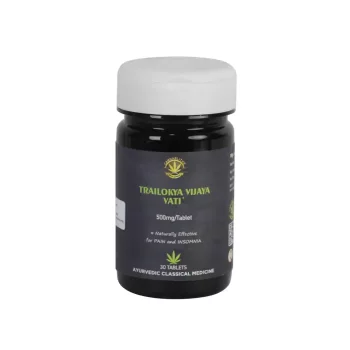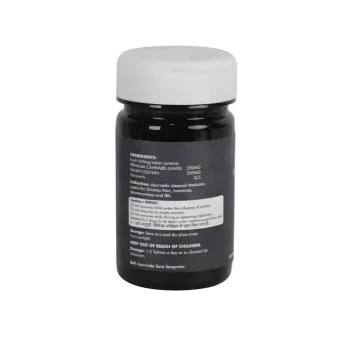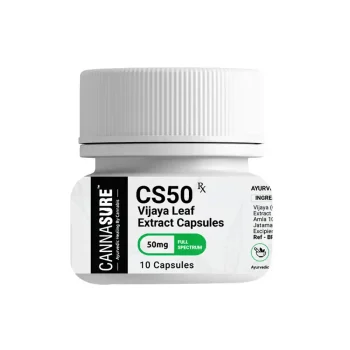Showing 1–12 of 193 results
What is Cancer?
The word Cancer denotes any one of a large number of diseases characterized by the development of abnormal cells that divide uncontrollably and have the ability to infiltrate and destroy normal body tissue. Cancer often has the ability to spread throughout your body.
Cancer develops when the body’s normal control mechanism stops working. Instead of dying, old cells grow out of control and form new, abnormal cells. These extra cells may form a mass of tissue called a tumour. However, some cancers like leukaemia, myeloma, and lymphoma, do not form tumours.
There are more than 200 different types of cancer.
What is Lung cancer?
Lung cancer is a type of cancer that affects the lung tissue. Lung cancer mostly affects the cell lining of the organ but in some cases, it can become invasive, spreading to blood vessels and lymph nodes as well. Lung cancer is one of the most common types of cancer worldwide, and it is often diagnosed in the later stages when it has already spread to other parts of the body. There are two main types of lung cancer: non-small cell lung cancer (NSCLC) and small cell lung cancer (SCLC). Lung cancer can be successfully treated if detected early. The course of treatment depends upon the stage of the cancer.
Common signs of Lung cancer
Some Common symptoms of lung cancer include:
- A persistent cough that does not go away or gets worse over time
- Chest pain that may worsen with deep breathing, coughing, or laughing
- Shortness of breath or wheezing
- Hoarseness or other changes in voice
- Coughing up blood or rust-colored sputum
- Fatigue or weakness
- Unexplained weight loss
- Loss of appetite
- Swelling in the face or neck
- Bone pain or headache (in advanced cases)
What causes Lung cancer?
Cancer is caused by changes or mutations to the DNA within cells. The DNA inside a cell is packed into a large number of individual genes each of which contains a set of instructions that tell a cell what functions to perform and how to grow and divide.
Errors in these instructions can cause the cell to stop its normal function and may allow a cell to become cancerous.
The most common cause of lung cancer is Tobacco smoking but there are several risk factors that can increase a person’s likelihood of developing lung cancer. Some of these risk factors include:
- Exposure to secondhand smoke: Even if you do not smoke, being around others who smoke can increase your risk of lung cancer.
- Exposure to radon gas: Radon is a naturally occurring radioactive gas that can seep into homes and buildings from the ground. Long-term exposure to high levels of radon can increase the risk of lung cancer.
- Exposure to asbestos and other workplace toxins: Exposure to certain chemicals and toxins in the workplace, such as asbestos, arsenic, and diesel exhaust, can increase the risk of lung cancer.
- Family history: People with a family history of lung cancer may be at higher risk due to shared genetic or environmental factors.
- Air pollution: Exposure to high levels of air pollution, particularly in urban areas, has been associated with an increased risk of lung cancer.
How does Cannabis medicine help with Cancer?
NOTE: Cannabis medicine should not be considered as a cure for cancer.
The therapeutic and medicinal benefits of Cannabis medicines can help provide relief from symptoms and complications caused by cancer and/or cancer treatments.
There has been a lot of interest in whether cannabinoids might be useful as a cancer treatment. The scientific research conducted so far has been laboratory research with results showing that different cannabinoids can:
- Block cell growth
- Cause cell death
- Reduce inflammation
- Stop the development of blood vessels that are needed for tumours to grow
- Reduce the ability of cancer to spread.
one of the compounds of cannabis, Cannabidiol (CBD) is studied for cancer-related treatment. It has been found to be non-intoxicating in nature and provides a broad spectrum of medicinal properties that can help relieve pain, nausea, vomiting, indigestion, skin pigmentation, and other complications caused by cancer and/or cancer treatments.
There is solid evidence in support of the idea that cannabinoids can reduce tumour growth in animal models of cancer. CBD may also increase the potency of certain drugs used to treat cancer.
Research on CBD Oil and Cancer
- The results of a 2019 study indicated that CBD could induce cell death and make glioblastoma cells more sensitive to radiation without any effects on healthy cells.
- A 2019 review of in vitro and in vivo studies focusing on pancreatic cancer revealed that cannabinoids, such as CBD, can help slow the growth of a tumour, reduce tumour invasion, and induce tumour cell death. However, the authors of the study also wrote that research into the efficacy of different formulations, dosing, and precise mode of action is lacking and urgently needed.
- A large, long-term study of men found that the use of cannabis may be inversely associated with the risk of bladder cancer. That said, a cause and effect relationship has not been established.
- A 2014 review of 35 in vitro and in vivo studies found that cannabinoids prove to be a promising compound in the treatment of gliomas.
- A 2014 study in experimental models of colon cancer in vivo suggested that CBD may stop the spread of colorectal cancer cells.
- A 2010 research demonstrated the efficiency of CBD in preclinical models of metastatic breast cancer. The study found that CBD considerably reduced breat cancer cell proliferation and invasion.
Potential Benefits of Cannabis Medicine for Lung cancer
- Anti-tumour effects: Cannabinoids, which are compounds found in cannabis, have been shown to have anti-tumour effects in preclinical studies. These studies suggest that cannabinoids may be able to slow the growth and spread of cancer cells.
- Pain relief: Cannabis and its derivatives have been used for many years to treat pain, including pain associated with cancer. For people with lung cancer, cannabis medicine may provide relief from pain and discomfort associated with the disease and its treatment.
- Anti-inflammatory effects: Some cannabinoids have been shown to have anti-inflammatory effects, which may be helpful in the treatment of lung cancer. Chronic inflammation is thought to play a role in the development and progression of many types of cancer, including lung cancer.
- Appetite stimulation: People with lung cancer may experience a loss of appetite due to the disease and its treatment. Cannabis medicine has been shown to stimulate appetite, which may be helpful for people with lung cancer who are struggling to eat.
- Anxiety and depression relief: A cancer diagnosis and treatment can cause anxiety and depression in some people. Cannabis medicine has been shown to have calming and mood-elevating effects, which may be helpful in relieving anxiety and depression in people with lung cancer.





























